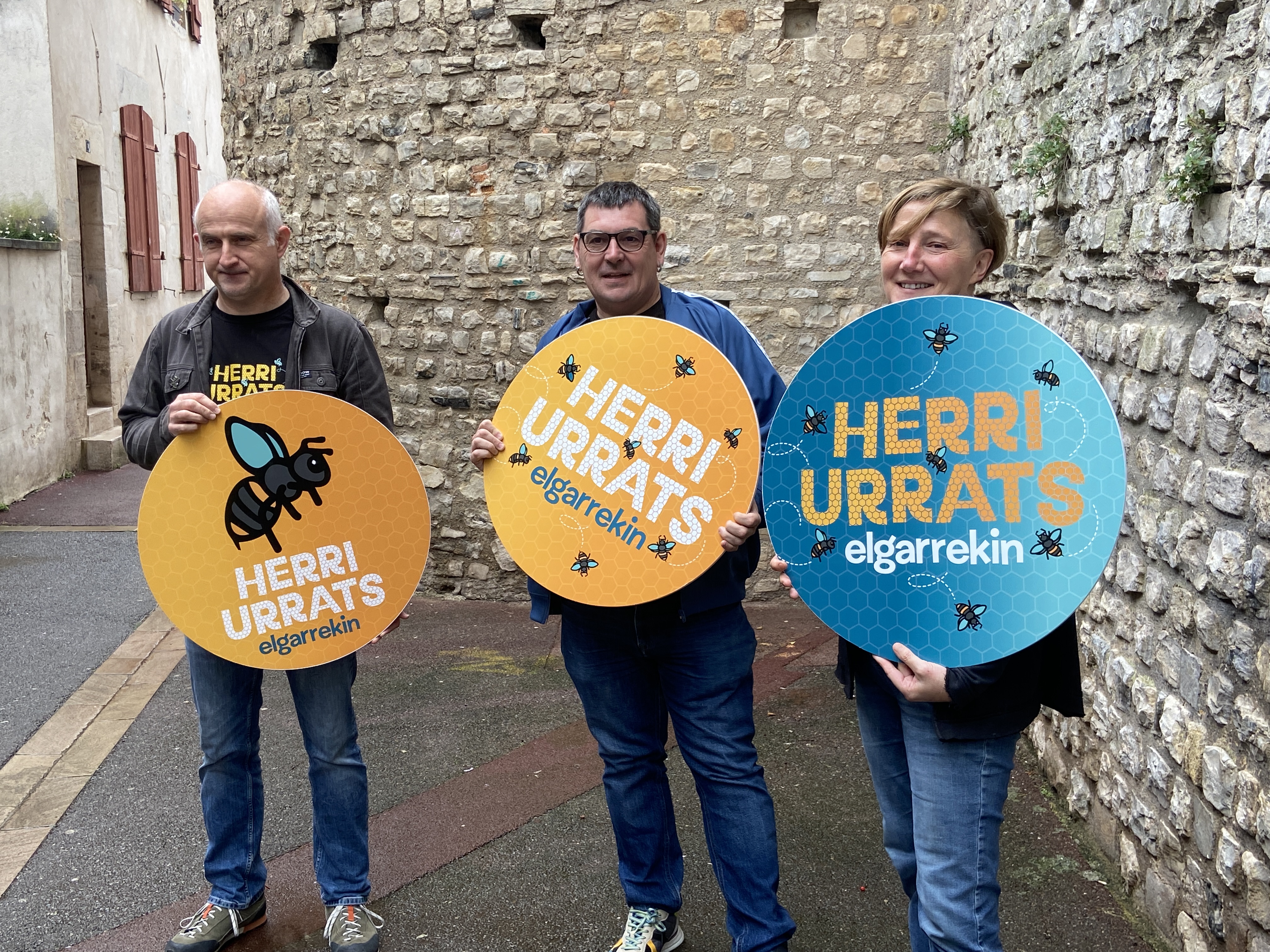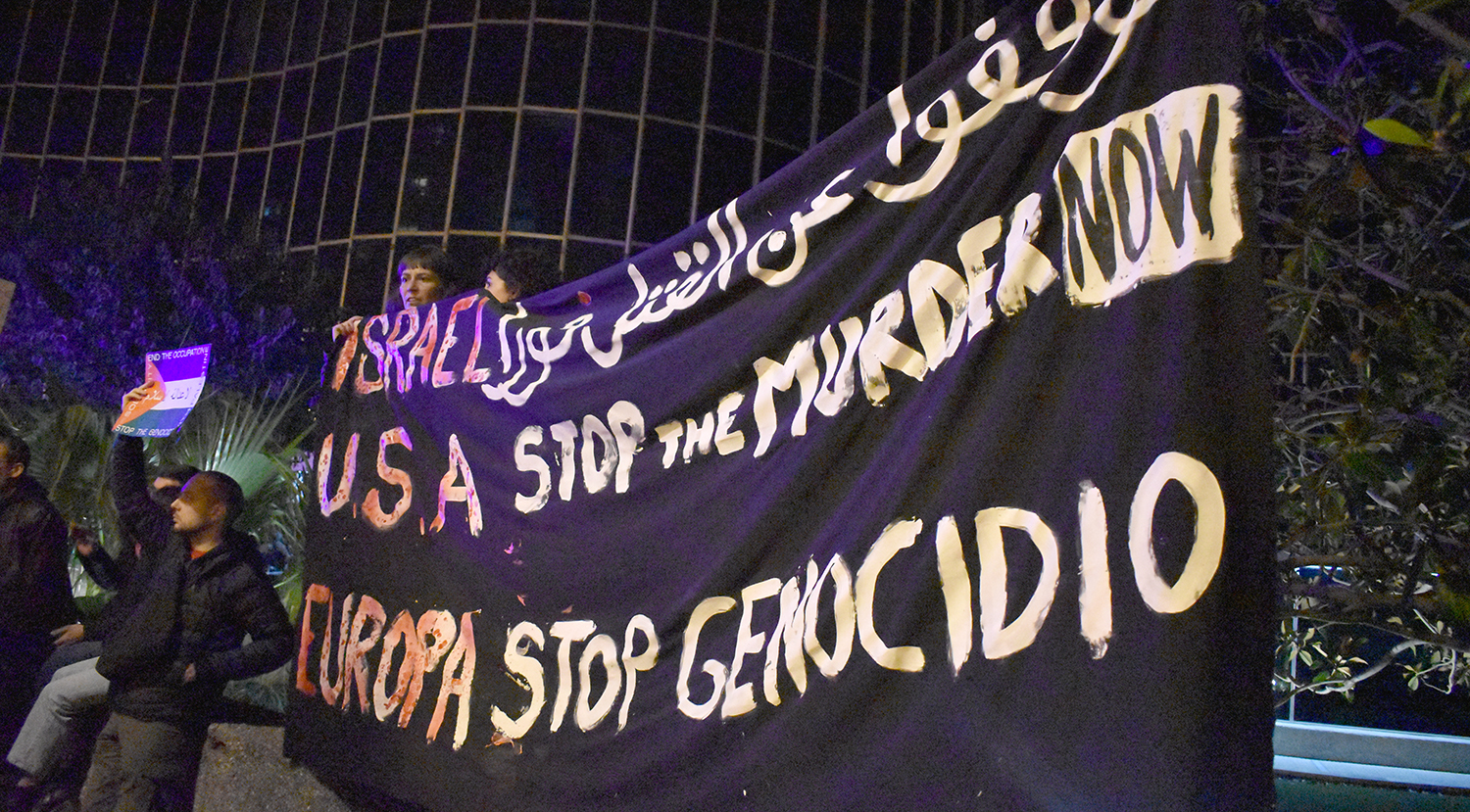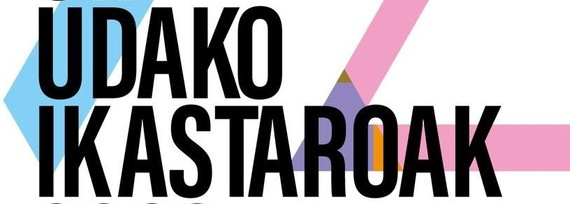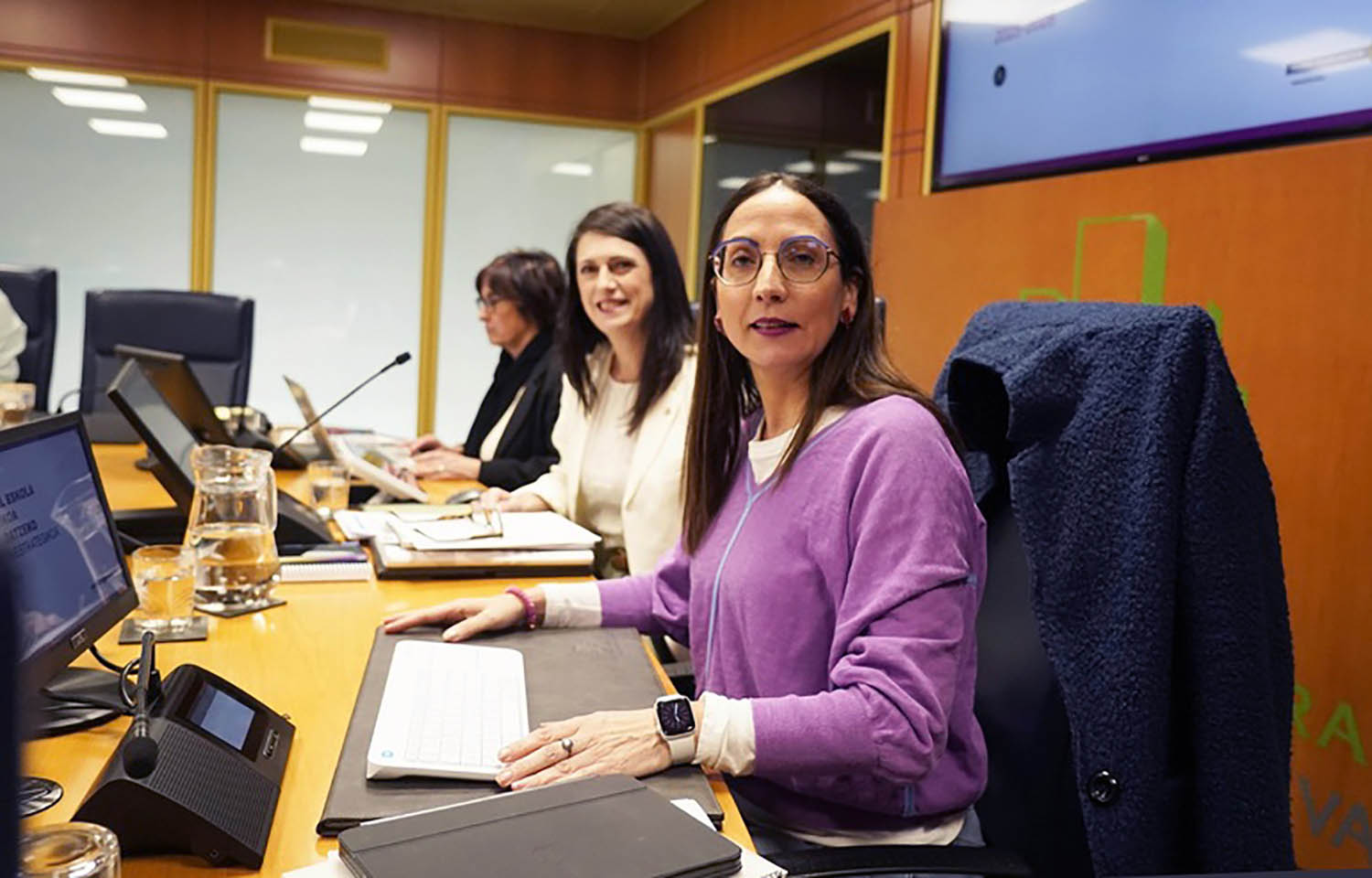"Since physical education is yet another subject in school, the treatment you receive cannot be this."
- Removed from the key competences, marginalised in the conversion of the Berritzegunes, disparaged in the number of hours... Luis Larrañaga, professor of physical education “Alimón”, has denounced to ARGIA that physical education in the CAV undergoes difficult times and that the administrations are marginalized: “Let our work be done, and to do so give the resources, the opportunities and the officiality that is given to the rest of the areas, we do not ask for more.”

Are you used to being a secondary subject?
It's never been easy. The Group for Physical Education (SOHAT) created it seventeen years ago and since then we have been fighting for the rights that other areas of education do not have to fight, it is exhausting. At the centre we often have to defend the subject and then, in addition, we have to do a great deal of work before the administration to convince people of the benefits of physical education. The Administration’s answer is that the lines are marked by Europe and Europe and others, but it is a matter of will, because, for example, when the Heziberri plan was drawn up, we talked about Xabier Garagorrosin, a designer of the Heziberri curriculum, and we managed to take into account the motor competence between the basic competences, and then also marked the lines of Europe in the same way.
Another historic struggle is to obtain a number worthy of hours for the physical education subject in order to perform our work in an orderly way, as we lose ourselves with respect to other core subjects. Before we had to devote at least an hour and a half to physical education, and two years ago we met with Eugenio Jimenez, Director of Centres and Planning of the Basque Government, and we managed to guarantee physical education at least three hours in the first and second years of Primary Education. In FP3-4 the minimum is two hours, in FP5-6 it is one and a half hours and in ESO the minimum of two hours has been maintained. Well, despite the fact that we have managed to improve the law, the questionnaire completed by 260 physical education teachers concludes that in many centers this minimum of three hours is not met. Sessions are often not one hour, so they do not reach three hours in total, and there are still schools that follow the previous schedule criteria and only offer two hours a week. We call for thorough monitoring of the audit and for compliance with the agreed minima. Optional subjects related to physical education are not offered at ESO and Baccalaureate schools, although it is mandatory to offer them.
Another example of a panorama is that physical education has never been included in the diagnostic evaluation. We can discuss how to perform the diagnostic evaluation, but if you do not participate in it you will never consider yourself as an area of improvement in the centers. And when policies are put in place that reinforce different areas, ours ends up even more marginalized, at the risk of becoming Mary's mary.
"Motor competence has disappeared, we have been taken from the official position, the counselor we had at the Berritzegune, we did not exist in diagnostic evaluations... What is really meant by physical education?"
You denounce that the LOMLOE law in force in the Spanish State has given them a freak.
The LOMLOE lists eight key competences and motor competence has disappeared from the list, they have removed it without giving any argument. This forces us, for example, to measure other competencies in physical education (social competence, learning…), and we make them known in the evaluation meetings, but we do not provide information on motor competence in physical education, let us think that it is crazy, because physical education is actually a function of students to develop motor skills. Our desire is for the student to become a professor of his own body in order to be able to successfully respond to any motor challenge. Through physical education, the student recognizes and learns to relate to the environment and other people. It is a fundamental competence. On the contrary, sometimes, physical education is understood as an hour of rest for significant subjects or as an extension of the patio, pure entertainment. And it's not like this: we have a program, a series of skills to work with, the student has to learn how to develop the intelligence engine.
And being a compulsory subject, how is motor competence not among the key competencies?
In education decisions are not neutral, there is always a political intention behind them, a way of seeing society and students: from the very beginning they want to prepare themselves to be future workers, but in basic education the general development of students should be the north. The music also has a 45 minute or an hour session a week. Are 45 minutes of music really enough if the goal is the general development of the student?
In addition, sport is often regarded as a consumer product, we are accustomed to grief, to winners and losers, good and bad, selected and excluded. This style is well inserted into our model of society, and we are not going in that direction.
"In physical education we evaluate other competences (social competence, learning...), but we do not provide information on motor competence, note the absurdity"
Another aspect: The Berritzegune Nagusia has entered into force, which has reduced and centralised the Berritzegunes in Bilbao, providing innovation and advisory services to the public centres of the CAPV. It says that transformation has been to your detriment.
The physical education faculty of the educational centers have met in seminars to reflect, channel needs and training, as well as to carry out the programmations requested by Heziberri and LOMLOE. These schedules are available to everyone on the SOHAT website and are the only material available in Basque. Now the reshuffle of the Berritzegunes has come and we have been told that these seminars will no longer be official and that the meeting spaces have been taken away from us. In addition, the Berritzegune Nagusia has been divided into several areas and in none of them is physical education. Moreover, the person who was at the Berritzegune to advise and guide training on physical education disappeared this year in the process of conversion of the Berritzegunes.
To talk about all this, we have been asking and asking for Amaia Agirre, the director of educational innovation at Berritzegune Nagusia, to meet and continue without a date. We have also contacted Birginia Pozo at the Berritzegune Nagusia and have not managed to meet. To let our work be done, and to do so give the resources, opportunities and officialdom given to the rest of the areas, we do not ask for more. Coordination between us, all the programming, we have to do everything in our free hours, we are not recognized for the work we do.
One example is the Physical Education Meetings, which we theoretically organize together with the Berritzegune, but there is no collaboration, which we are increasingly isolated in the organization and which are successful meetings, as last year we gathered 350 teachers, who are turning their backs.
Motor competence has disappeared, we have been taken from the official position, the counselor we had at the Berritzegune, we did not exist in diagnostic evaluations... What is really meant by physical education and the motor development of the student? Because since it is another subject in school, the treatment it receives cannot be this one.
We have had to endure another attack on our language by the Department of Education of the Government of Navarre; we have been forced to make an anti-Basque change in the PAI program. In recent years, by law, new Model D schools have had to introduce the PAI program and have had... [+]
Public education teachers have the need and the right to update and improve the work agreement that has not been renewed in fifteen years. For this, we should be immersed in a real negotiation, but the reality is deplorable. In a negotiation, the agreement of all parties must be... [+]
Garai kuriosoak bizi ditugu eta bizi gaituzte, zinez. Hezkuntza krisian dela dioten garaiak dira eta, gutxien-gutxienean, aliritzira, ba aizue, 2.361 urte ditu gaurgero boladatxoak.
Ez zen ba debalde joan Aristoteles bere maisu maite Platonen akademiatik lizeo bat muntatzeko... [+]
Lehengai anitzekin papera egitea dute urteroko erronka Tolosako Lanbide Heziketako Institutuko kimika industrialeko ikasleek: platano azalekin, orburuekin, lastoarekin, iratzearekin nahiz bakero zaharrekin egin dituzte probak azken urteotan. Aurtengoan, pilota eskoletan kiloka... [+]



















